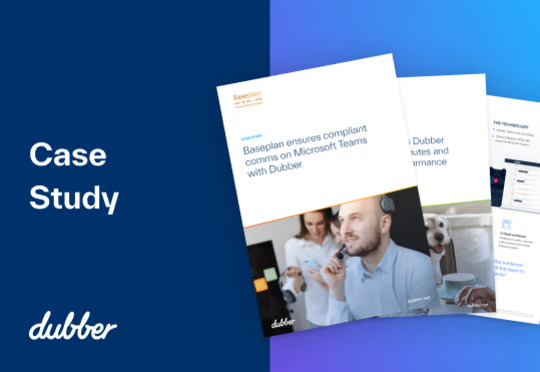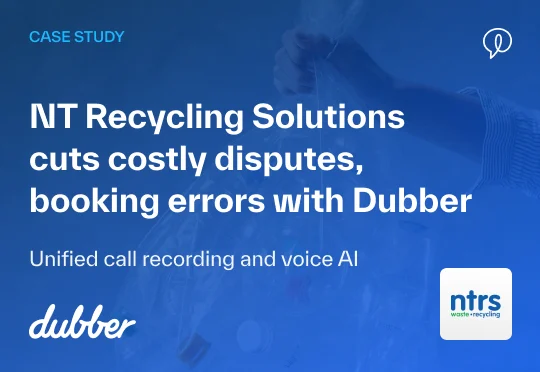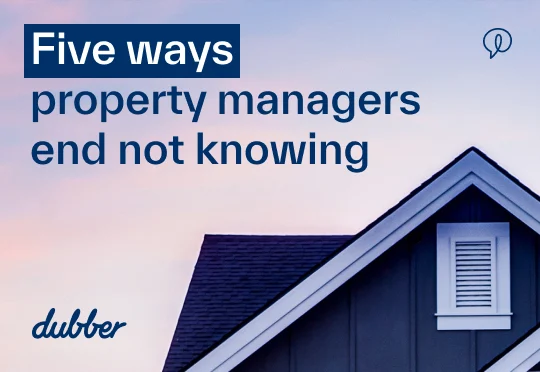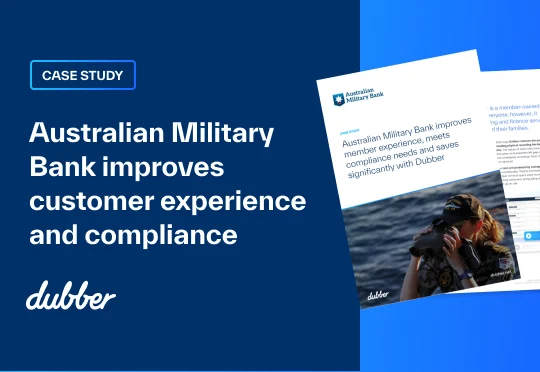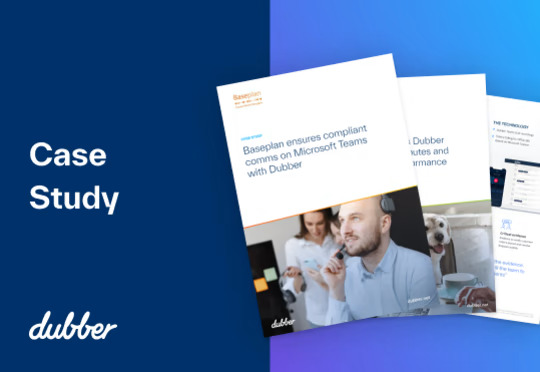
WellPet Vets saves thousands using Dubber Call Recording to confirm clients understand agreed procedures and costs
Here’s the backstory
WellPet turned to Dubber when it needed a better way to record calls at three veterinary hospitals in its Western Sydney practice.
Lucy Chapman, WellPet senior manager, says 19 employees speak to clients throughout the day. This includes nurses, receptionists, and admin staff. The practice is busy, it runs around the clock 365 days a year and deals with hundreds of calls every day.
WellPet noticed there was a problem. What clients would say about their phone conversations with staff didn’t always match notes taken at the time. This led to billing disputes.
“We want to be able to confirm what a receptionist says when on a call. In this industry, there are a lot of emotions because we deal with pets. Things can escalate fast. We wanted to know if clients’ reports of what staff told them was accurate, or if it was a bit of a lie,” she says.
Why WellPet chose Dubber
WellPet IT manager Anthony Karolis says his company took its first steps with call recording when it implemented a call centre.
“We had media recording provided through Cisco Media Sense. There wasn’t anything intelligent: it recorded, nothing else. Media Sense was reliable but we’d end up with .wav files that had random names. It meant we would have difficulty finding recordings and matching them to calls. Often we would lose recordings.”
Karolis says Outcomex, WellPet’s systems integrator, proposed Dubber as part of a review of the company’s IT infrastructure. This was in preparation for a move to cloud-based Cisco Webex Calling.. He says that Outcomex worked with WellPet to get the right solution in place and that “… the Outcomex technical guys work like an extension of my team”.
WellPet chose Dubber because the licence cost was much lower than the alternatives. That meant every call at the three hospitals could be recorded, not just a select few.
The Dubber Experience
Installation was simple. Dubber is cloud-based and fully integrated with Cisco Webex Calling, so it was switched on instantly. At WellPet it was a matter of giving log-ins to relevant staff members and a short rundown on how to use the software.
Today, if there is a query or concern, Chapman’s team can find the relevant recording fast.
She says: “When we search for a client phone number in our database, we can find the file. Linking to a number, not a client account, is important as WellPet often deals with new clients.
“We can immediately clarify what the client said and listen to the context. Our previous system was fine up to a point, but if IT is not your main focus it could be complex to use.
“When we switched to Dubber we had a system that an average user would have no trouble navigating. I found it easy, even with tasks like exporting recordings. That’s something that was difficult with our previous system.
“No matter how many times we did it, things would always go wrong or we’d lose something and not be able to find it again. Now I can do this myself in minutes.”
Recently, WellPet helped the police with an investigation. Chapman needed to extract many recordings the police wanted. She says with Dubber it was easy to find and export them.
“This was something I would have needed help with when we used the previous system.
She says: “Because Dubber is more user-friendly, I find myself using it more. In the past, there were situations where call recordings would have been beneficial, but I knew retrieving them would involve too much work. It might take several hours to track down two minutes of audio.”
Here’s the results…
The key benefit of Dubber is to resolve billing issues. Chapman says a client may be told a vet has found something and needs to conduct tests that might cost $1500. Then at billing time the client says they were never warned about that. “We’re able to fight disputes now that we have the evidence to back us up. We can tell the client that they were told of the cost and consented”. This has saved WellPet thousands of dollars and ensured issues don’t escalate further.
Another area where WellPet now uses call recording is in training. Chapman uses it to give client-facing staff feedback on how to better handle calls. This is important because the people dealing with calls tend to come from a veterinary nursing background and are not necessarily experienced in front-line customer relations.
She says she can listen to understand where someone may have used the wrong language or if something was explained that didn’t make sense. Likewise, if there is a client complaint she can listen and discuss the incident with the person involved.
Ultimately, this means that we can improve the service we offer to clients.
